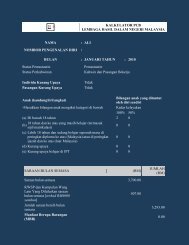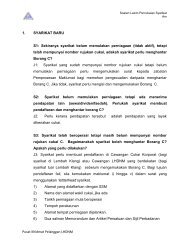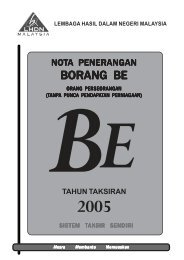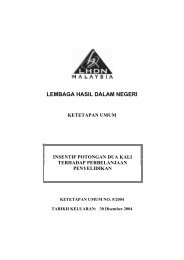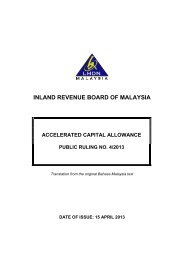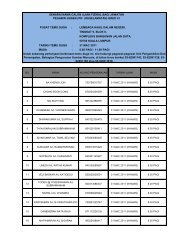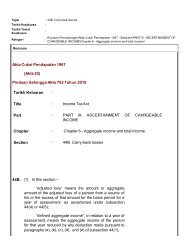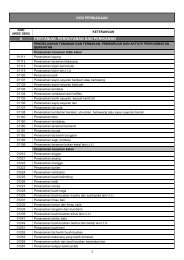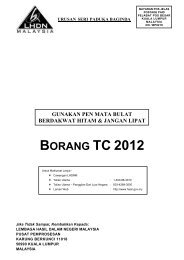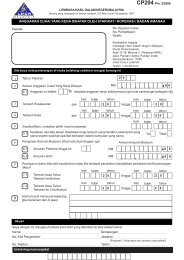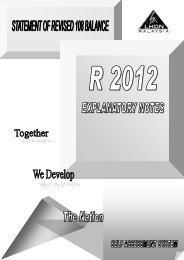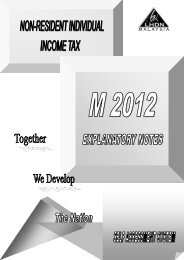Tan Sri Mohd Sidek Hassan
Tan Sri Mohd Sidek Hassan
Tan Sri Mohd Sidek Hassan
- No tags were found...
You also want an ePaper? Increase the reach of your titles
YUMPU automatically turns print PDFs into web optimized ePapers that Google loves.
Datuk Noriyah AhmadMALAYSIA’S transformation towards a knowledge-based economysince the mid-1990s has seen encouraging achievements but moreneeds to be done.The Malaysian economy registered a gross domestic product (GDP) growth of4.6% in 2008. Total factor productivity (TFP), encompasses enhancing efficiencyof all factors of production including the development of human capital throughknowledge-based activities, inculcating a creative and innovative mindset as well asadopting new technologies and innovation to accelerate productivity growth, is arelevant measure. TFP grew by 2% for the period 1999-2008 where all economicsectors registered TFP growth ranging from1% (agriculture) to 2.3% (manufacturing).The economy is targeted to achieve a TFPgrowth of 2.2% during the Ninth MalaysiaPlan (2006-2010) and 2.8% in the 2011-2020 period. The study on knowledgecontent in key economic sectors done byEconomic Planning Unit, Prime Minister’sDepartment, in 2007 measured the levelof knowledge content and readiness of theMalaysian industries. The study encompassesa stratified random survey of 2,433 firmsfrom 21 industries, comprising agriculture,manufacturing, services, and wholesale andretail trade sectors.ICT is the enabling toolin a knowledge-basedeconomy whereby regularuse of ICT as part ofan employee’s job isassociated with higherproductivity in industries.The study defines knowledge content as the sum of human capabilities, leadershipassets and experience, technology and information capital, collaborativerelationships, intellectual property, information stocks and capabilities for sharedlearning and utilisation that can be used to create wealth and foster economiccompetitiveness.The knowledge content measurement framework identifies four knowledgeenablers and four knowledge actions with innovation and economic performanceas outcomes.Knowledge content was highest in the telecommunications, IT and chemicalsindustries whereas the agriculture, wood and construction industries reportedthe lagging industries. The gaps between the large firms and SMEs, that of foreignand domestic firms, have narrowed as compared with a similar study done in 2003,highlighting opportunities to promote knowledge exchange and learning betweenleading and lagging industries.101



